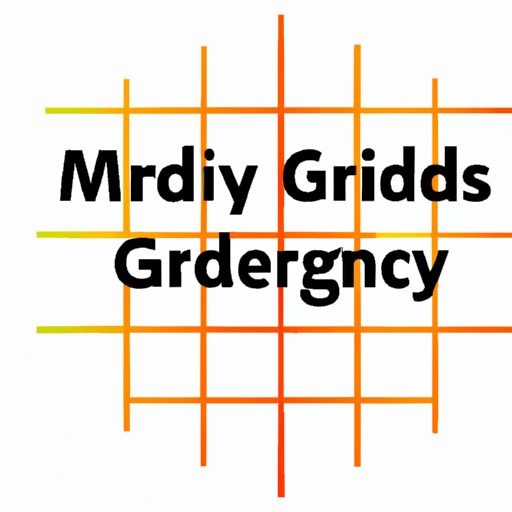Grid is a leading provider of energy management solutions that help businesses optimize their energy usage and reduce costs. One of the key components of Grid's offerings is its market policies, which are designed to create a fair and competitive marketplace for energy consumers.

One of the key market policies that Grid has implemented is the use of real-time pricing. This pricing model allows businesses to see the actual cost of energy at any given moment, enabling them to adjust their usage patterns to take advantage of lower prices. By providing this level of transparency, Grid is helping businesses to reduce their energy costs and to make more sustainable choices.
Grid also promotes the use of renewable energy sources through its market policies. By offering incentives for businesses to invest in solar, wind, and other renewable energy technologies, Grid is helping to reduce carbon emissions and create a more sustainable energy system. This not only benefits the environment but also helps businesses to reduce their reliance on fossil fuels and to insulate themselves from price fluctuations in the energy market.
Another key aspect of Grid's market policies is its focus on energy efficiency. By encouraging businesses to invest in energy-efficient technologies and practices, Grid is helping to reduce overall energy consumption and to lower costs for businesses. This not only benefits the bottom line but also helps to reduce the strain on the energy grid and to create a more sustainable energy system for the future.
Grid also promotes competition in the energy market through its market policies. By allowing businesses to choose their energy providers and to shop around for the best rates, Grid is helping to create a more dynamic and competitive marketplace. This competition drives innovation and efficiency in the energy sector, ultimately benefiting businesses and consumers alike.
In conclusion, Grid's market policies are designed to create a fair, transparent, and competitive marketplace for energy consumers. By promoting transparency, efficiency, and sustainability, Grid is helping businesses to reduce costs, make more sustainable choices, and drive innovation in the energy sector. Through its focus on real-time pricing, renewable energy, energy efficiency, and competition, Grid is leading the way towards a more sustainable and efficient energy system for the future.
Grid is a leading provider of energy management solutions that help businesses optimize their energy usage and reduce costs. One of the key components of Grid's offerings is its market policies, which are designed to create a fair and competitive marketplace for energy consumers.

One of the key market policies that Grid has implemented is the use of real-time pricing. This pricing model allows businesses to see the actual cost of energy at any given moment, enabling them to adjust their usage patterns to take advantage of lower prices. By providing this level of transparency, Grid is helping businesses to reduce their energy costs and to make more sustainable choices.
Grid also promotes the use of renewable energy sources through its market policies. By offering incentives for businesses to invest in solar, wind, and other renewable energy technologies, Grid is helping to reduce carbon emissions and create a more sustainable energy system. This not only benefits the environment but also helps businesses to reduce their reliance on fossil fuels and to insulate themselves from price fluctuations in the energy market.
Another key aspect of Grid's market policies is its focus on energy efficiency. By encouraging businesses to invest in energy-efficient technologies and practices, Grid is helping to reduce overall energy consumption and to lower costs for businesses. This not only benefits the bottom line but also helps to reduce the strain on the energy grid and to create a more sustainable energy system for the future.
Grid also promotes competition in the energy market through its market policies. By allowing businesses to choose their energy providers and to shop around for the best rates, Grid is helping to create a more dynamic and competitive marketplace. This competition drives innovation and efficiency in the energy sector, ultimately benefiting businesses and consumers alike.
In conclusion, Grid's market policies are designed to create a fair, transparent, and competitive marketplace for energy consumers. By promoting transparency, efficiency, and sustainability, Grid is helping businesses to reduce costs, make more sustainable choices, and drive innovation in the energy sector. Through its focus on real-time pricing, renewable energy, energy efficiency, and competition, Grid is leading the way towards a more sustainable and efficient energy system for the future.